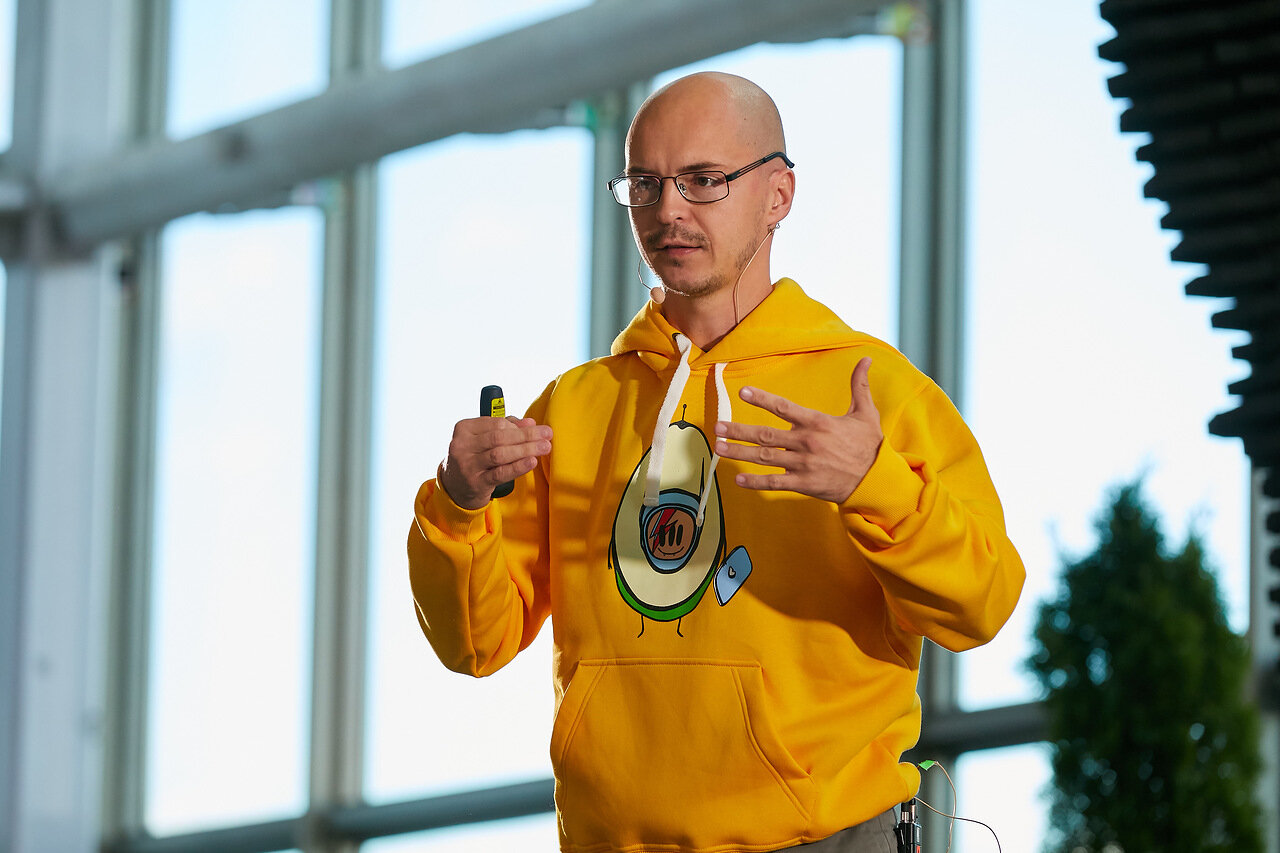The new hero of Business Class is Dmitry Volkov, a member of Forbes’ list of the wealthiest businesspeople in 2021, founder of SDVentures, and a Doctor of Philosophy. Forbes spoke with him about when people might become immortal, whether eternal life will be available only to the rich, what transhumanism is, and whether we are actually living in a simulation.
In 2019, Dmitry Volkov entered the list of Russia’s 200 wealthiest businesspeople for the first time. With a fortune of $750 million, he earned his wealth in the dating industry and investments in IT projects, including OpenAI, Shazam, and Patreon. However, aside from business, one of Volkov’s major life interests is philosophy. He explores topics such as transhumanism, free will, personal identity, artificial intelligence, and more. In 2009, Volkov founded the Center for Consciousness Research at Moscow State University, and five years later, he organized an expedition to Greenland with prominent thinkers from around the world. He has also met the Dalai Lama. Volkov is a digital nomad, currently living between Dubai, Italy, France, and Latvia. He also enjoys playing the piano, piloting helicopters, attending the Burning Man festival in the U.S., and is active on social media.
What is Transhumanism?
“The question of death is the central issue of humanity. Most transhumanists believe that we can overcome death through digital continuation of life — digital immortality. There are two directions here. One option is symbolic continuation of life, like Pushkin, who ‘erected an unmade monument’ to himself. Continuing life in children is also a form of symbolic immortality. Many still believe that symbolic immortality is the maximum we can aspire to. When I talk about transhumanism, I’m talking about real immortality. You can continue life after biological death on a digital medium. From my point of view, what will continue is the core of personality — its narrative, a collection of memories and the psychological portrait. This is likely the most valuable thing we value in immortality. And this core could be transferred to digital carriers.”
Will Eternal Life Be Reserved for the Rich?
“Transhumanism does not always coincide with economic inequality or worsening living conditions for the majority. This is one of the scenarios we must also consider. But when computers first appeared, they also created a divide between people who had access to them and those who didn’t. Now, access to computers is available to everyone. The same happened with airplanes.
There is no reason to assume that we’ll have to divide resources. It’s possible that the most essential resources will be infinite. Digital immortality looks like a fairly cheap commodity, much cheaper than immortality through cyborgs or enhanced models of organic beings.”
Are We Living in a Simulation?
“The simulation hypothesis is an interesting one. As far as I know, it was proposed by transhumanist philosopher from Oxford Nick Bostrom. He suggested considering the probability that our world is a simulation. One possibility is that our world is truly physical, while another possibility is that it is digital code. According to his view, we can’t determine which reality we’re in. Even if we were inside the matrix today, we wouldn’t be able to tell from within. Then, we might try to hypothesize what’s cheaper: a physical or a digital world? Bostrom concludes that creating a digital world would be much cheaper than creating a full-fledged physical one. Therefore, there are probably far more digital worlds than physical ones, which increases the probability that we’re living in a digital world. Bostrom’s argument has been supported by others. It is known that Elon Musk has also pondered this problem and stated that there is indeed a chance this could be the case.
Personally, I think the probability that we’re already living in a simulation is quite high. Honestly, I don’t see any fundamental difference between physical and digital realities. We observe reliable repetition of the past and laws. We see that our reality ‘abides’ in terms of regularity. So, there’s really no difference. No cheating will occur.”
On Communicating with “Synthetic” People
“In the dating industry, we faced a problem of choice. Most people consider themselves above average in all respects. This paradox arises because, in reality, the average is simply the average. People’s expectations from relationships are much higher than what they can actually offer. This leads to disappointment. It’s not necessarily bad for dating companies, since it keeps people engaged in apps. Eventually, there comes a period when they begin courting each other, trying to present their best selves. After two or three months, this mythical reality usually dissolves. And both partners are not prepared to accept this.
As an alternative, we want to offer people the opportunity to communicate with synthetic people. We don’t want to hide the fact that these will be digital people. Several studies have shown that interacting with such bots can be very beneficial. It helps people train their social skills and receive the necessary amount of attention. About 12 years ago, Stanford researchers conducted an experiment where four groups of users were given the opportunity to communicate with bots and humans. The topics of communication were deep, important, and social. An interesting discovery was that communication with bots, which involved emotional contact, proved to be the most productive in the long run. It turned out that people were not afraid to open up to bots, as they had no interest in manipulating the information. This type of communication is safer than with regular people.”
Does Free Will Exist?
“Free will is the ability of a person to make decisions regardless of circumstances and have alternatives on how to act. These are the basic two principles that define the presence of free will. The problem arises from the fact that free will is incompatible with determinism. Determinism is also an important idea that everything in the world has physical, psychological, genetic, and other causes. Philosophers are trying to figure out how to reconcile free will and determinism. Some succeed in doing so, while others believe it’s impossible. But most philosophers agree that free will and determinism can coexist quite well.”
Why We Need to Believe in Free Will
“There are many studies confirming that belief in free will influences how much effort a person puts into things. For example, two groups of students were given different texts before performing a test. One text affirmed the presence of free will, while the other discussed determinism. After reading the text about free will, the group scored higher on the test than those who read about determinism. In general, if we think that yes, there is determinism, but at the same time we are free, we can perform actions more efficiently and apply more effort to achieving our goals.”
When Philosophy Becomes Practical
“For example, ethics is an entirely practical field, as it deals with rules and principles of behavior. Every day, whether in business or life, we face decisions. For instance, should we lie or not? Sometimes, there are situations where lying seems to benefit the greater good, but it’s still a negative action. Or we have to choose between two bad options: one benefiting a close person, the other benefiting several people we don’t know.
There’s another ethical issue. Now, self-driving cars are being developed. Suppose a car ends up in a situation where a collision is inevitable. There are two options: either save the driver or save three people on the car’s path. We need to somehow predict this and program the car to make the best possible decision.”
The Evolution of Philosophy in Russia
“Russian philosophy was mostly religious for a long time. Then, there was a lengthy period when philosophy in Russia, or rather in the Soviet Union, was replaced by Marxism and Leninism. People focused on Hegel, Feuerbach, Marx, and a bit of Lenin. This can’t really be called philosophy; it’s more ideological training. Then, in the 70s or 80s, everything collapsed, and various philosophical trends poured into Russian philosophy from all directions. Continental philosophy became more prominent, along with various Eastern traditions. The only ones who stood firm were logicians, who were strong both in Russia and in the Soviet Union. They would drink vodka at the department and never mix with the ideologists. They did complicated work, nobody bothered them, and they lived well, moving forward in terms of studying the mechanisms of proper thinking.”
“Business Is a Process of Learning”
“For me, business, philosophy, and science are all projects that go in one direction. Both are about exploration. In the beginning, I got into business because I needed to satisfy basic needs and maybe prove something to myself. But over time, especially now, I’ve realized that for me, business is a process of learning. And, by the way, this provides a good antidote against high levels of stress. In business, especially when you’re building something new, the feeling of failure haunts you most of the time. So, you need to find strength to keep going. And if you change your mental model, you can experience much less stress and much more enjoyment. In this sense, philosophy has been an area of activity in the same direction — I’ve been trying to understand issues that seem important to everyone.”






